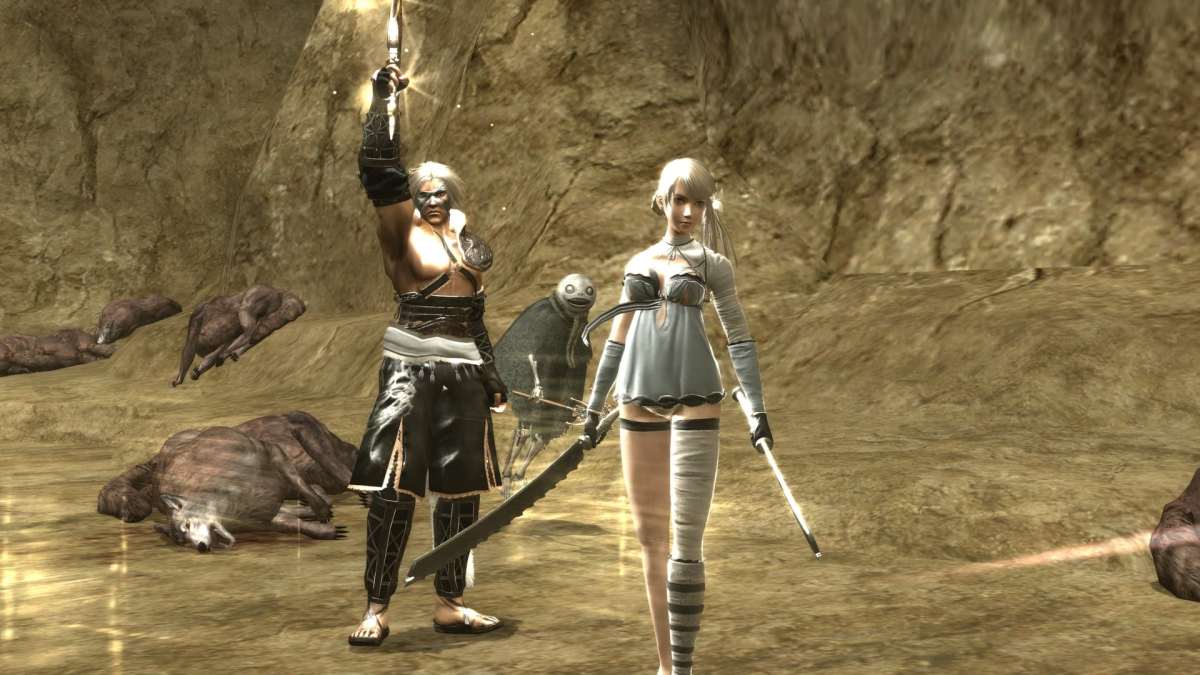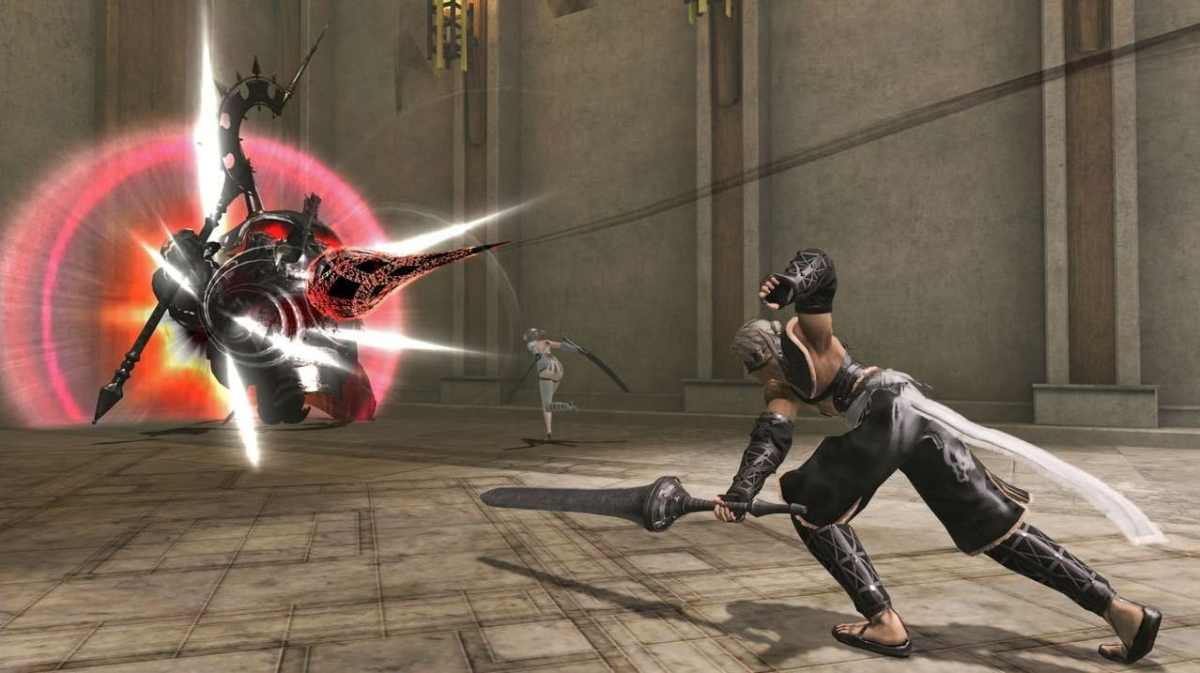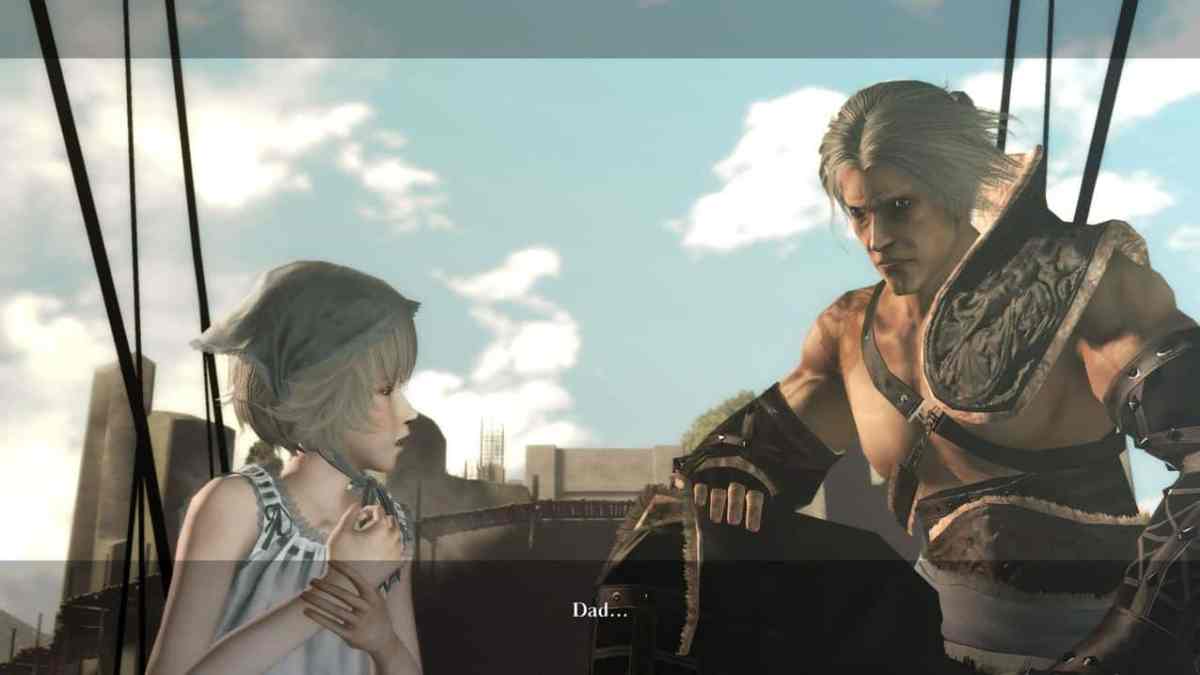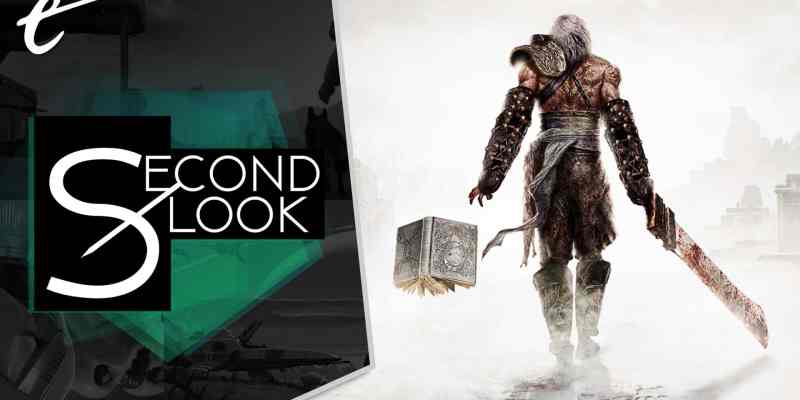It feels like a miracle that we have gotten to the point of a proper remake of Nier. The original game received a rough initial reception, yet unexpected sequel Nier: Automata from PlatinumGames broke through and won over wider audiences to Yoko Taro’s wild, wonderful world of dystopian gothic sci-fi fantasy. So with Nier Replicant ver.1.22 about to bring things full circle, I figured now would be a good time to talk about the original Nier, the best game in 2010 that absolutely no one bought.
For the uninitiated, Nier is essentially a playable fairy tale, in the classic Grimms’ Fairy Tales sense. Stories are whimsical and dark, with otherworldly yet oddly familiar creatures, sweeping tales of heroism laced with dramatic tragedy, a unique moral message that’s at times both hopeful and bitter, and lots of magic. It’s not a huge surprise, as Taro’s many works draw from classic folklore and fairy tales, including a recent mobile game directly harnessing iconic heroines like Red Riding Hood — albeit with characters like her turning psychotic, but therein lies Taro’s habit to twist everything just enough.
On paper, Nier is, depending on the version, a tale of either a father or brother named Nier trying to save the life of his disease-ridden daughter/sister Yonah. Except it’s 1,400 years in the future since humanity fell apart due to a plague, and most of society has reverted to roughly feudal technology. Not to be deterred, our hero sets out on his quest with a loving determination that almost makes you forget the game’s opening prologue, where another Nier and another Yonah, during the fall of humanity, were in strikingly similar circumstances. Hmm.

Along the way, Nier teams up with wise-talking book Grimoire Weiss, cranky intersex swordwoman Kaine, and a boy with a petrifying gaze who means well, Emil. Each is seeking to achieve some personal end, as well as help cure Yonah by acquiring long lost “sealed verses” that will enable them to end a plague. Recovering these verses requires hunting down massive beasts known as Shades and slaying them with Weiss’ magic.
What’s remarkable is that for all the swordplay and magic hailfire, Nier can be incredibly chill and grounded. Yes, everyone’s dressed like only Victoria’s Secret and ren fairs were left after the collapse of society, but this never gets in the way of the very human stories at the heart of Nier. There’s an entire questline where you put together a strange drink to convince the local librarian to sing her heart out, and the reward is… you get to hear her and the local bard perform together. It brings your local community together and plays music you’d never have found otherwise.
You can also spend a fair bit of time gardening, fishing, and hunting. There’s more than one instance where Yonah will insist on cooking a meal, and you have to grin and bear it to raise her mood. This is fantastic stuff, and most importantly — none of it’s forced.

One of my favorite traits about Taro’s games is that he never does something without a reason. It might be a base reason, like his designing 2B in Automata to be alluring because, well, he wanted her to be a hot goth robot woman. However, this also means that he doesn’t obey conventions where traditional game design can do the same thing. As such, Nier is an incredibly agnostic game, never really conforming to a specific genre. In theory, it’s an M-rated Zelda, but then it’s a text adventure, then a puzzle game, then a bullet hell isometric shooter, and a platformer, and a Resident Evil homage, and I’m not actually done listing everything because oh my gosh this game is just packed with new twists.
Although, as a result, Nier is never hugely complex in terms of player engagement. You may very well use the same few abilities for most of a playthrough and be quite happy with that. Weapons are few and far between, mostly made unique by the role they play and how you invest upgrades and words (see: modifier perks) in them. This is to Nier’s benefit though, as your magic attacks are typically like in a third-person shooter, which was highly unusual to see around the game’s release.
Instead, the depth comes from the encounters you engage with, like enemies ranging from ancient machines to monolithic monsters, or unique environments such as a sand-like twist on Venice themed around Aztec culture. The same mechanics you might’ve used in the environment earlier with a different camera perspective suddenly become relevant later in a boss fight, and somehow your brain doesn’t end up shouting “WHAAAAA” in dissonance. It all just flows so elegantly.

The same can be said for Nier’s pacing, which respects you by engaging you as much as you engage with it. Skip a bunch of sidequests and you’ll have little need to play the role of Nier as a member of his community, but you’ll also miss out on useful gear, story tidbits, and resources that will help you down the road. Indulge in the handcrafted world and you’re rewarded with the same rich storytelling, sweeping music, pondering pathos, and bittersweet humor that fans of Automata have come to love. All of the right elements of a gaming classic are in Nier; they just needed a chance to bloom.
That’s what makes talking about Nier so challenging — despite delivering what other games would later be celebrated for, it just didn’t hook people at the time. Maybe it was the marketing, or the combat lacking flair, or just being too weird, but it deserved better than it got. Yet with the remake, there’s a chance for the original story to be given an opportunity to shine. We’ve had so many games about fatherhood, about subverting traditional game design for something deeper, blending darkness and humor to explore what it means to be human, and highlighting flawed, diverse characters who are genuinely deep people. And yet out of all those games celebrated, one of the best of its generation was brushed to the wayside.
As such, with the Nier remake on the horizon: Please, buy the darn thing this time! I don’t wanna be 40 years old when they finally make another one! *is being dragged off stage* Yes, the remake stars the brother instead of the dad — but it’s still Nier! *is locked back up in his office till next week*
